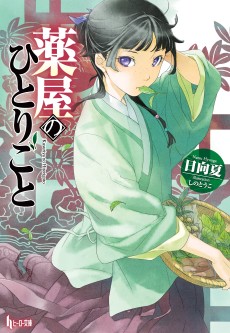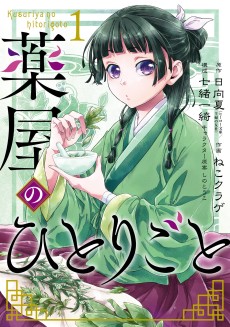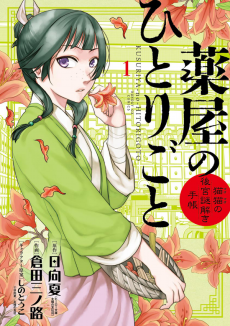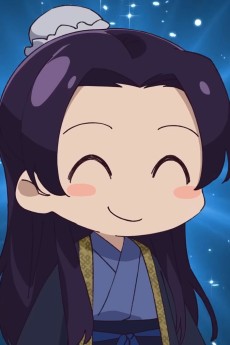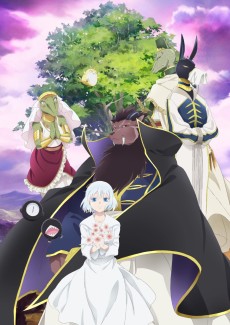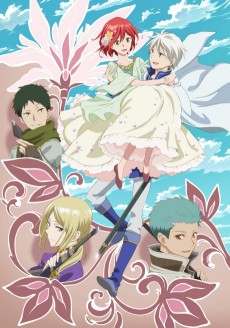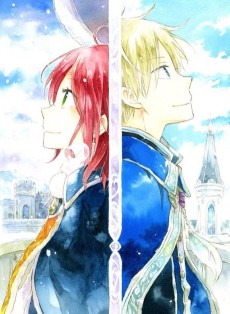KUSURIYA NO HITORIGOTO
STATUS
COMPLETE
EPISODES
24
RELEASE
March 24, 2024
LENGTH
23 min
DESCRIPTION
Maomao lived a peaceful life with her apothecary father. Until one day, she’s sold as a lowly servant to the emperor’s palace. But she wasn’t meant for a compliant life among royalty. So when imperial heirs fall ill, she decides to step in and find a cure! This catches the eye of Jinshi, a handsome palace official who promotes her. Now, she’s making a name for herself solving medical mysteries!
(Source: Crunchyroll)
CAST

Maomao

Aoi Yuuki
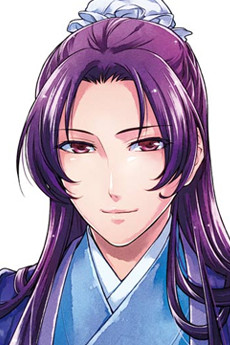
Jinshi
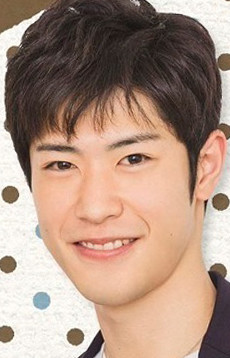
Takeo Ootsuka
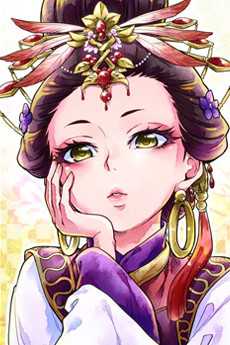
Rouran
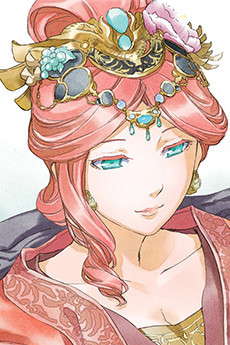
Gyokuyou

Atsumi Tanezaki
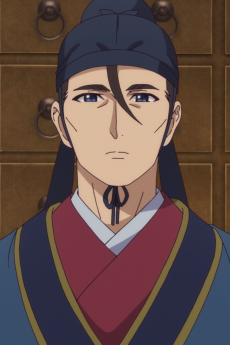
Gaoshun
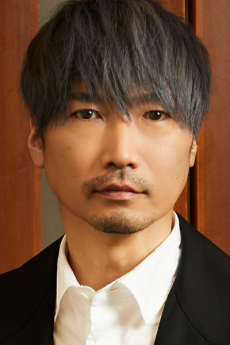
Katsuyuki Konishi
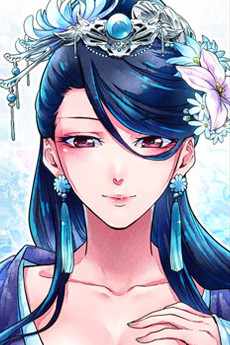
Rifa
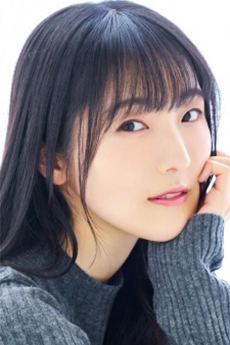
Yui Ishikawa
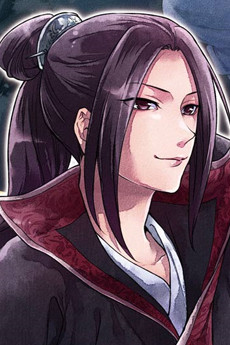
Aaduo

Yuuko Kaida

Lakan
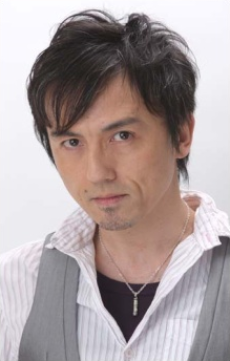
Takuya Kirimoto
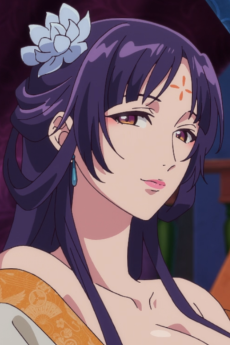
Pairin
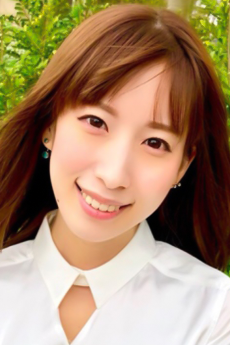
Ami Koshimizu
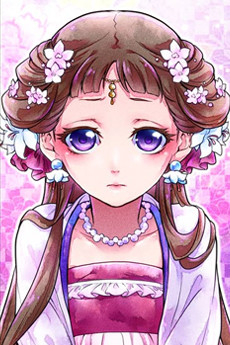
Riishu
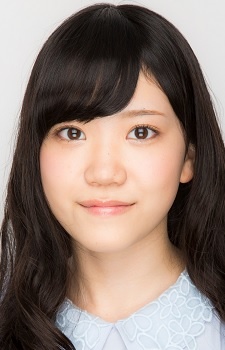
Hina Kino
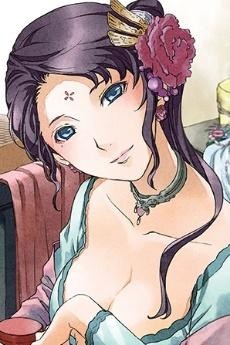
Meimei

Megumi Han
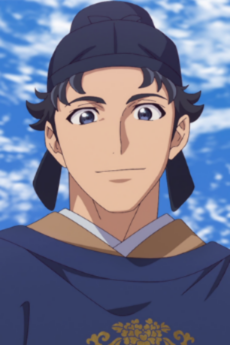
Lihaku
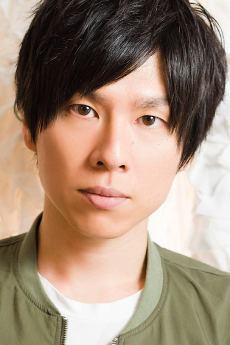
Kenji Akabane
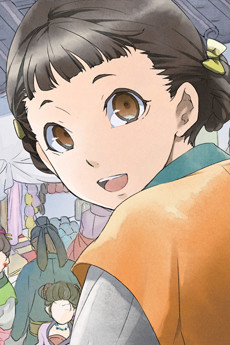
Xiaolan
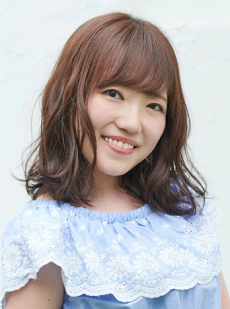
Misaki Kuno
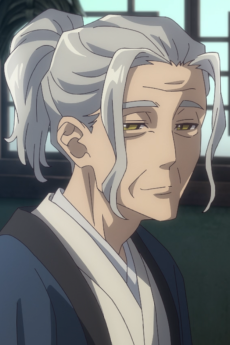
Ruomen
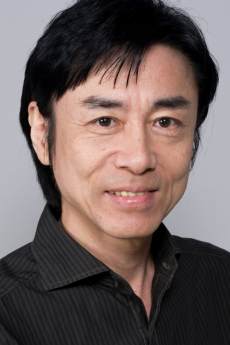
Hiroshi Yanaka
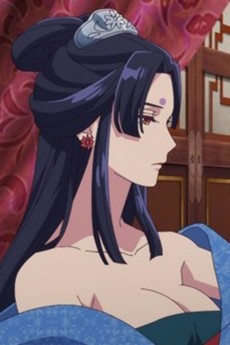
Joka
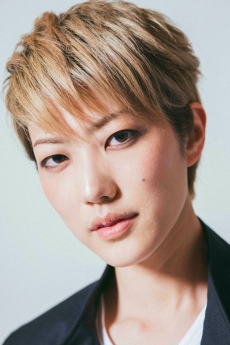
Hiroki Nanami
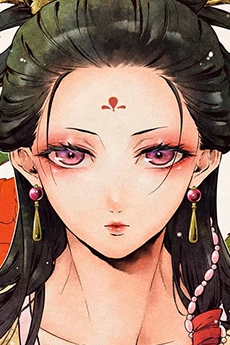
Fenshen

Houko Kuwashima
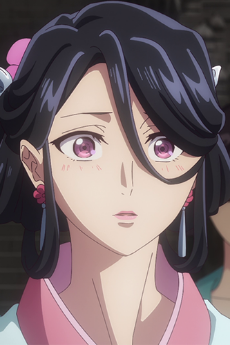
Fuyou
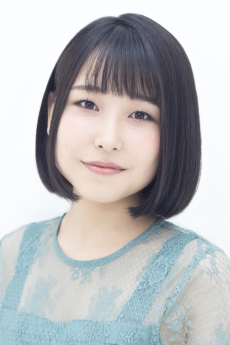
Natsumi Kawaida
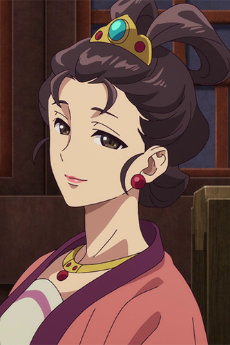
Hongniang
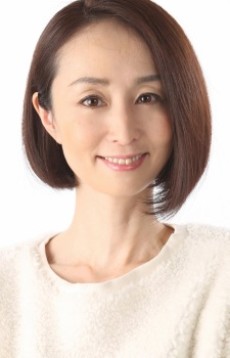
Megumi Toyoguchi
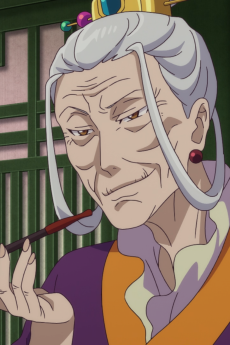
Yarite Baba

Kimiko Saitou
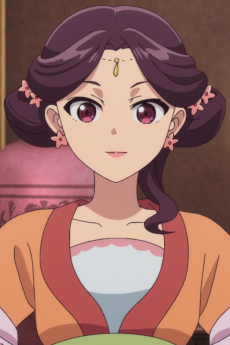
Yinghua
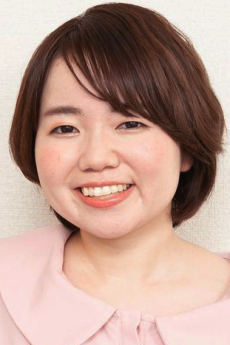
Rie Hikisaka
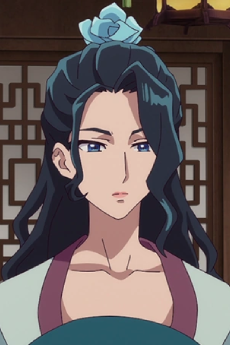
Suirei
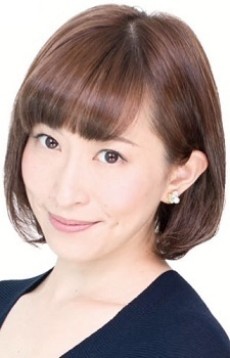
Kaori Nazuka

Lingli

Atsumi Tanezaki
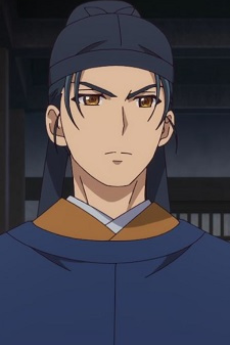
Basen
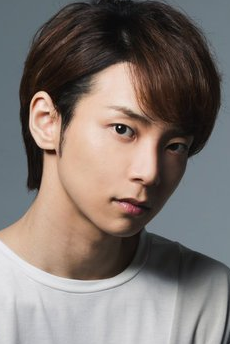
Tatsumaru Tachibana
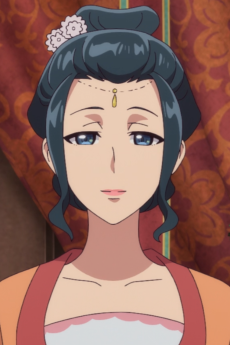
Ailan
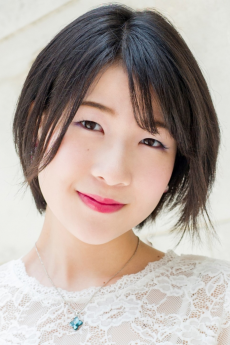
Misa Ishii
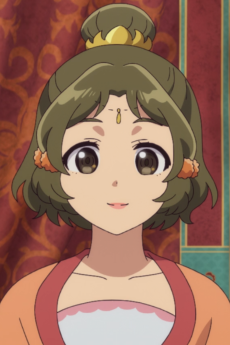
Guiyuan
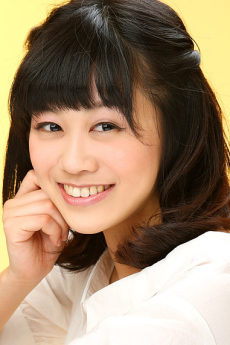
Takako Tanaka
EPISODES
Dubbed
RELATED TO KUSURIYA NO HITORIGOTO
REVIEWS

melamuna
85/100The story does not carry Maomao; Maomao carries the storyContinue on AniList
There's this YouTube video called “Audience Hate Bad Writing, Not Strong Women” by Master Samwise, which summarizes my thoughts on the recent trends of using characters in today's landscape, especially in anime. The video focused more on the American industry aspect and how they're representing women, and the same concept does apply in the Japanese aspect but not in the way you would expect, and it's not just an issue of the portrayal of women but also men. In the video, Master Samwise made a brief mention of how these American blockbusters tend to skip over character development as a trade-off between spectacle and half-baked representation. I believe this also applies in the anime industry, not just in terms of representation but also in terms of how much anime viewers crave spectacle-well-drawn top-of-the line animation while putting characters as a mere minor trait.
Most anime that came out today are pretty straightforward with their plotlines, and they do ways to create wild and heart-wrenching moments where characters had to face intense crumbles of downfall until inevitably getting back up from their knees through their sheer will and making the impossible possible. These are your basic kinds of storytelling that's effective to make audiences connect and care with your characters; however, recently, this formula has been used so much that we're just blindly following the determined routes of these characters that, in their minds, ensure us, the audience, that we'll connect with them, but forgetting the part where they'd actually have to write a compelling three-dimensional character to fully sell us in. We've seen this a lot recently, especially in the fantasy genre and shounen titles, where you struggle to connect with these characters because of how much they're not just more than the predetermined formula they've plastered upon, and seeing these tropes getting distributed and redistributed a couple of times without any effort of giving personality, you'll end up with products that's basically the same just with a different shade of paint. ***
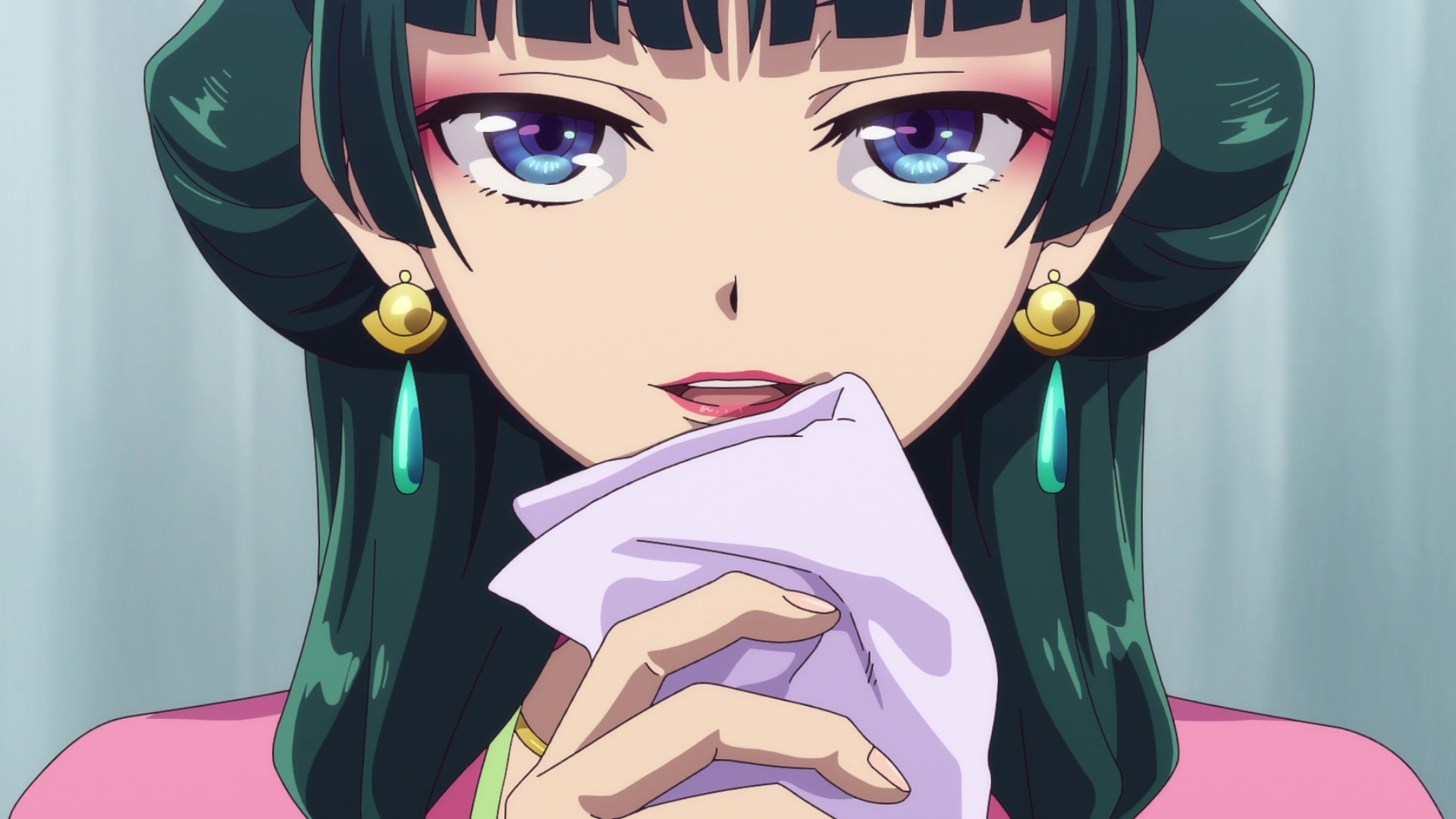
Now with that in mind, how does “The Apothecary Diaries” stack up amidst the abundance of similarly plotted characters being given secondary priority? Well, it surprisingly does the opposite. We follow our main character Maomao, who's been kidnapped by the kingdom and works there as a lower-class servant, but after a certain incident regarding noble women that's filled with superstitions and beliefs about its cause, Maomao steps in and secretly treats these noble women without the knowledge of everyone. Unbeknownst to her, the palace has been searching for someone who treated these noble women and offered her a higher position as a poison tester for the palace. On paper, the anime does sound like an intriguing series, and it's definitely a step above the “I accidentally got myself into a certain situation I couldn't get out of” trope. It gives the story the ability to make characters have room to make decisions and comments on their own instead of being forced upon them; this helps us, the viewers, to connect and relate in a genuine manner. It does help even more that the series doesn't have an overarching “quest” or an “ultimate goal” to hook the audience. It's an exploration of where Maomao lives and her weekly encounters with weird and new things relating to her field as an apothecary. It might not be for everyone to have episodes have an episodic feel, but that complaint immediately disappears once you realize that the series is not about being an apothecary, how this kingdom and world run, or how there may be a plot twist along its story; however, it is just a series where our main character Maomao navigates through this world as well as being an apothecary on the side. ***
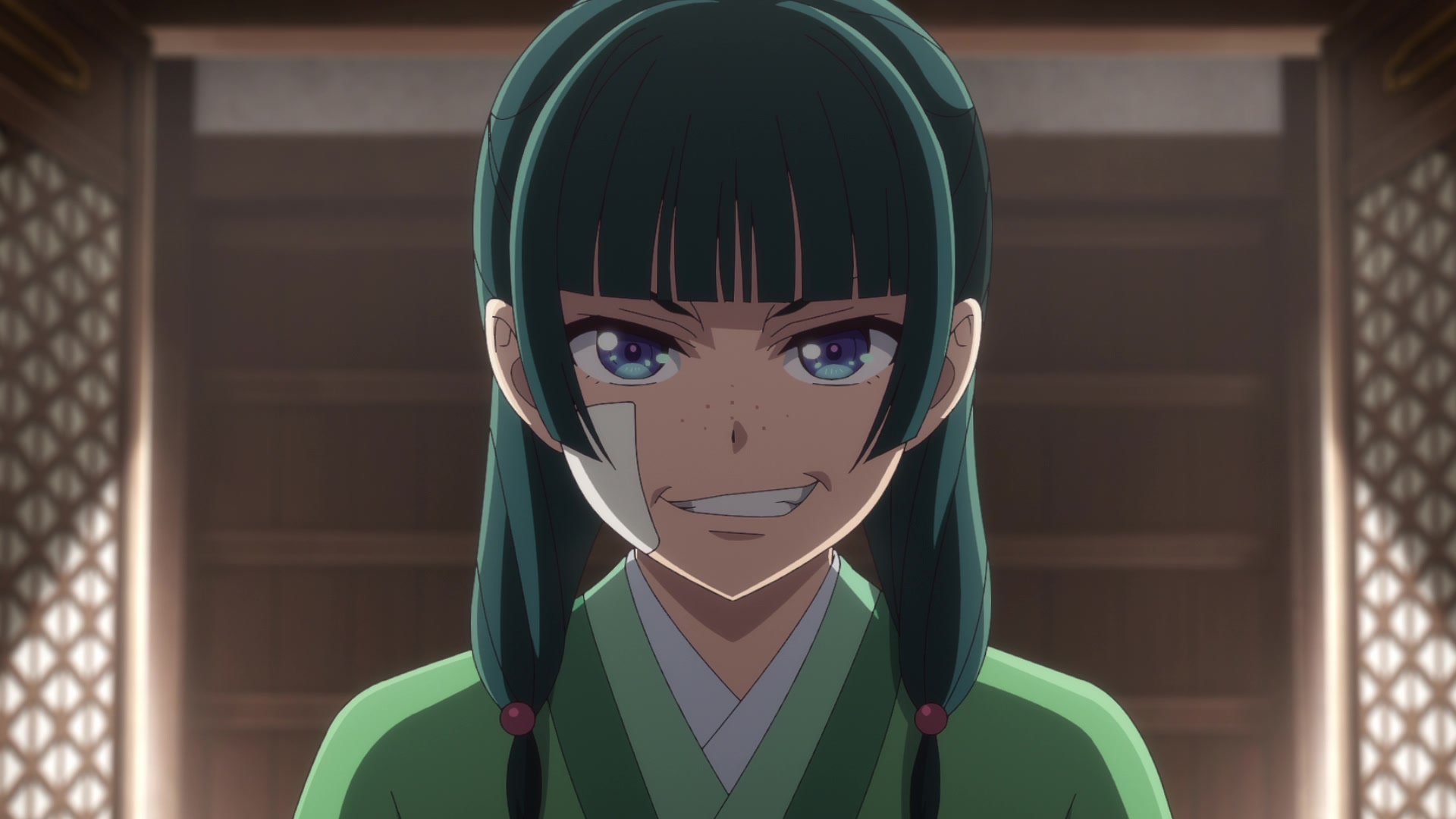
Maomao carries this series on the back of her shoulder without tiring out. She exerts a lot of personality from her enthusiasm for poisons, where she would do odd things to enjoy them, witty dialogue, her unique problem-solving skills, her ways to not get involved too much with the people around her without being nonchalant in a way, and how she lives through her own wave with confidence that deviates from the generic anime character that you just can't stop looking straight to your screen and be amazed at what and how she will act next when she's given a situation, whether for mundane teases by Jinshi or being offered a highly intensive job of poison testing. Essentially speaking, Maomao is not carried by the story, but the story is carried by Maomao. There are lots of moments where you can see where it's going, especially when you can spot a specific formula where a certain story flow is. You'd be fortunately dumbfounded by Maomao’s unique way of facing the issue, and you'd just be applause for taking such logical steps according to her own values and what's best in the situation. Other characters in the show have the same qualities as Maomao, where they carry the scenes in their own unique way, from Jinshi’s silent obsession with Maomao to the minor characters, such as Gaoshun, who is your confused yet relieved royal guard, and the background characters, such as the maids, who excrete so much personality despite not giving much more screen time to shine. The world of this series excretes so much life from its well-rounded characters, curious minor characters, and loud background characters, a basic trait in storytelling that most anime series recently failed to provide, which this series nailed hard while sprinkling more. ***
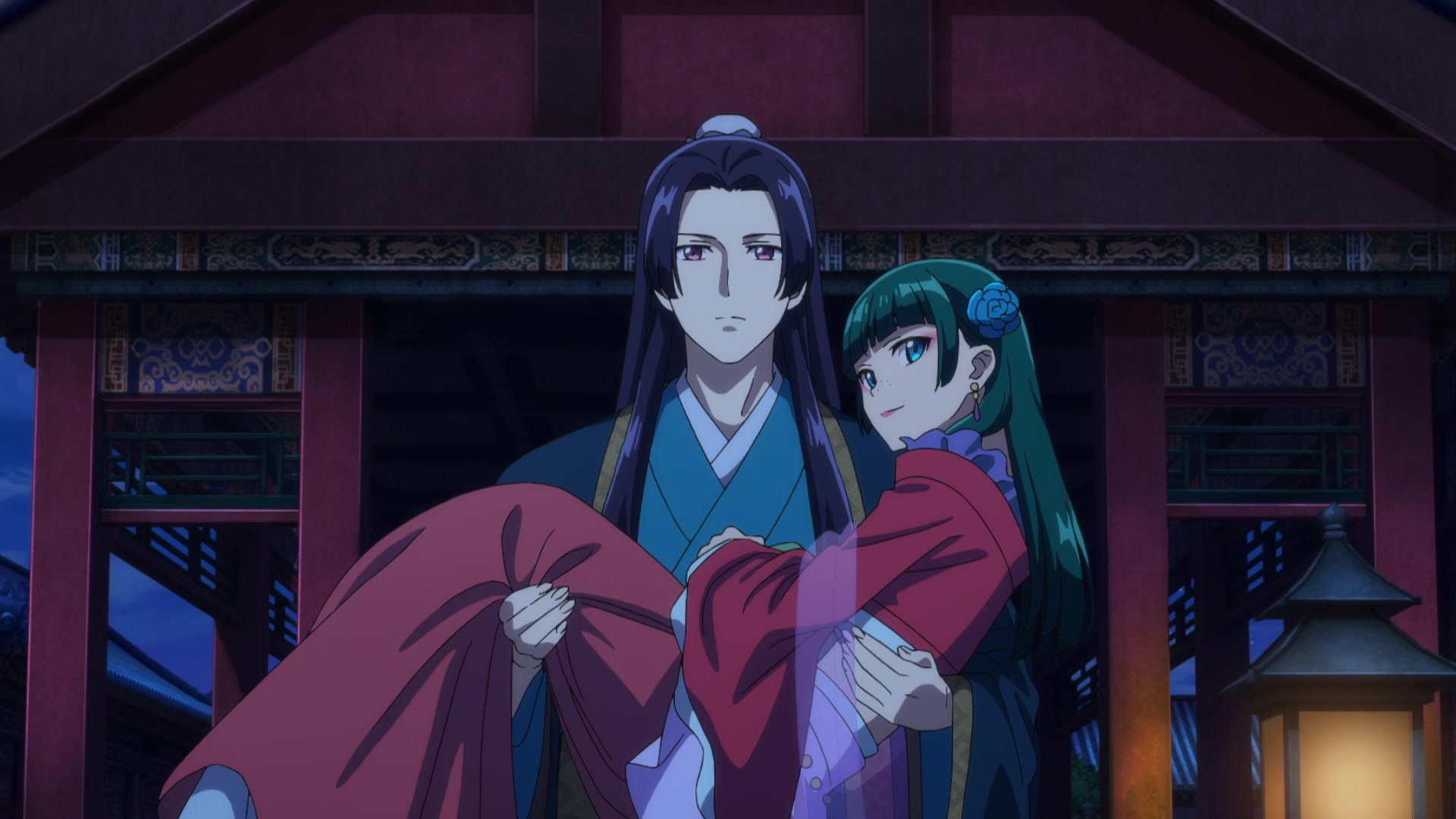
There are still a lot of great things about this series that will be pointed out by other people, such as that well-balanced silky vibrant look, how its mystery is structured and how, despite being structured as an episodic series, it leaves many clues and stories for future episodes to progress without overwhelming the viewer or getting too stuck in one single arc. As it stands right now, The Apothecary Diaries is one of the most entertaining and captivating series released recently because of its three-dimensional characters and how it trusts the audiences that they'll connect with these out-of-the-current written characters without the reliance of an adrenaline-kicked overdrawn animations, a testament that there's still more stories that can be told in this medium without the reliance of plot-driven tropes. ***

Mcsuper
91/100Hilarious, Endearing, and Captivating - Maomao Does It AllContinue on AniListHaving grown up in a household filled with family that loved Chinese period dramas, they were virtually inescapable for me. Someone in my family was always watching the hottest new period drama, and eventually, I also began to watch them with my family, and I got hooked on them quickly. At this point, the tropes in those shows were all too familiar to me, so count me surprised when I watched The Apothecary Diaries, and almost immediately thought of what a breath of fresh air this was. It has probably the best female character of 2023, and while it definitely was overshadowed by a certain other heavy hitter, Frieren: Beyond Journey’s End, this anime still had enough going for it to merit a lot of discourse in the anime community, and in my opinion stood up to its opponents in both the Fall 2023 and Winter 2024 anime seasons very well.
This series has very riveting mystery elements, while staying light-hearted and comedic at times, and all encapsulated in a fictional inner palace, modelled after a Chinese setting. As I have mentioned earlier, I am no stranger to Chinese period dramas, and I always find it interesting how gender is portrayed in these shows. In the older Chinese dynasties, the Imperial Chinese harem system was very prevalent and common, and the inner palace, babymaking and the objectifying of women, with them being handled and passed around as gifts, was what life was dedicated to. For that reason, I find it intriguing that in this portrayal of the inner palace, we see the perspectives of women with agency, solving problems, being involved in the politics of the palace, all in quite a thoughtful way. Also, the existence of a particular character in the show as a test of loyalty to the emperor struck me as a different twist to the whole system, a unique take on this fictional Chinese setting.
The mystery elements were done well, as it was interesting to see how this series introduced a lot of mysteries, but didn’t outright provide the answer, or culprit to the viewer. We get the reasons why people were caught up in issues, or in some cases, how they ended up dying, but the viewer gets left questioning whether or not the intuition of the main character was actually accurate. Things are not answered right away, but eventually, the series calls back to those mysteries that the viewer might have forgotten, and weaves them together for a great pay-off. Some of the episodes, especially in the early parts of the second half, were not as interesting when I first watched it, but knowing how it set up for the pay-off, in hindsight, it did made a lot more sense, and that indeed, every moment, even the duller ones, had some effect on the bigger picture.
The main protagonist, Maomao, makes the entire show for me, and was the main reason I enjoyed this anime as much as I did. She was such an endearing, captivating main character that had a really dynamic personality that could range from her not giving a bother about getting kidnapped at the start of the anime, yet throughout the series, really investing herself in the mysteries of the palace setting, and through her endless thirst for knowledge (and poison), we got to see her go to great lengths to achieve whatever goal she set out to achieve on any given day. Her voice actor, Aoi Yuuki, performed spectacularly to bring out the varied tones to match up with her multi-faceted personality, and she really made Maomao come to life in the best way possible. She reminds me of other protagonists I have seen in Chinese period dramas, but her character writing was more unique compared to any others, and I am glad she had her own ambitions she was able to achieve, rather than just being a tool for the emperor or her superiors. All the other characters also shined in their own ways, and even the ones that only show up briefly, end up being memorable.
The art and animation in this show was not flashy, but still very highly detailed and intricate to really flesh out the setting. The character designs were varied and were unique while staying true to its Chinese identity. The more subtle movements were handled with care, such as the little mannerisms that befit the Chinese setting. The covering of the mouth with their sleeves as they enter a room, and how the characters eat their food are just some examples of that in action. Little details like that really impressed me, as it showed how much care the staff put in to making sure they stayed true to Chinese culture. The music further elevated the material to new heights. Sure, the overall visual quality isn’t at a level of the powerhouse shounen anime, but with the resources the staff had at their disposal, they did a phenomenal job.
Overall, this was a fantastic series, along with one of the best main female characters I have seen in a while. While not every mystery or every episode hit as deeply, whenever they did, it was excellent, riveting, even bone-chilling. If you have any interest in Chinese dramas, or even if you don’t, there will likely be something you will find that intrigues you. With a Season 2 confirmed for next year, I couldn’t be more excited to see more of this wonderful series.

Scheveningen
75/100A solid and endearing period drama that is not quite a true mystery seriesContinue on AniListThe Apothecary Diaries is a likeable enough historical drama that is more parts the atmosphere of intrigue than a proper mystery. To be fair to the show, it does not really bill itself as something in the vein of Agatha Christie, where the focus would be on the construction of its mystery as a puzzle the audience might be able to solve before the characters. They are more so storytelling or aesthetic devices, but even then, still leave something to be desired. Much of the show then ends up relying heavily on its character appeal and aesthetics to charm and engage the audience. No doubt this is the source of its digestibility and broad popularity, but it also seems to necessitate a rather feel-good atmosphere that dispels much of the danger and more off-putting elements of its historical setting. Sanding down many of the rougher edges of the period has left the series hard pressed to really drive home any of its themes it occasionally brings up like the cruel nature of the palace and the status of women during this era. All this leaves Apothecary Diaries in a strange position of being an entertaining drama but without much else in the way of thematic substance. While this is certainly still adequate for most people, or possibly more desirable than something tense and incisive, it cannot help but feel like even the show wants more for its characters than just being entertaining for the sake of it.
The mysteries in the initial episodes are broadly effective at establishing the tone and expectation of the series as one built around a core of rather serious palace intrigue and scheming. Yet it also immediately presents the issue that most of them are solved using information kept from the audience, or by inferences that feel too much like leaps in logic with how much they rely on the character’s prior knowledge. This does not start as much of a problem since the viewer is able to see all the intrigue and speculation as part of the plot or atmosphere rather than a puzzle being presented to them. However, as the series goes on, more and more time is dedicated to going over Maomao’s thought process on these mysteries which leads steadily to the impression that they are meant to be solvable by the audience as well. This creates a distinct frustration as there is never much satisfaction in thinking about the problem along with Maomao despite the show gradually encouraging it. It is still possible to infer, or more frankly guess, the answer to the mysteries, but these conclusions lack any textual evidence to support it and often rely on the intuition or genre-savviness of the viewer. Even someone who happens to have knowledge of the technical or scientific elements involved in the mysteries cannot use that to solve them since much of specifics are kept from the viewer until Maomao presents it in her final conclusions. Some degree of this is acceptable as a sort of narrative sleight of hand to highlight the intelligence of the character. However, this eventually presents a disjoint in the series being framed heavily as a mystery or puzzle while having the narrative construction of a drama which has much lower demands in how tight its plot elements need to be.
The mysteries themselves also tend to lack staying power in the memory of the audience since they are mostly one-off occurrences. While they do have the function of revealing things about the characters, it is mostly limited to information about their personal history or showing off some new entertaining quirk to endear them to the audience. Since the vast majority of the mysteries are not particularly long running or complex, they never give a deeper insight into Maomao’s or Jinshi’s ideals or biases, nor do they test them or force compromises which in turn hinders either of them having any real growth. It is not until the latter half of the season, where the second light novel is adapted, that there is any throughline that connects all the mysteries into one larger conspiracy of sorts. Even then, the lead up to the climax is impossibly obtuse, with genre expectations being the only way a viewer can predict how any of these instances could be convincingly related to each other. This connect-the-dots moment does make for a dramatic revelation, but it failed to impress the viewer with the brilliance of a character putting together clues that were also fair game for the audience, nor does it create any tension or emotional connection through a viewer putting things together before the characters and then worrying for them. All this gives a distinct impression that the mysteries which frequently form the centre piece of episodes seem to have very little utility beyond being intriguing for the sake of it. While this is not necessarily a problem, and par for the course in most straight up dramas, it feels distinctly lacking given the framing and potential of the Apothecary Diaries.
With how obtuse and obfuscating the show can be, it is then somewhat remarkable how little subtlety there is when it comes to the more ‘organic’ mysteries about the personal histories of the characters. These are not mysteries in the genre sense of the term but rather the general character unknowns that can be found in any show. Much of the season builds up the implicit questions around Jinshi’s actual role in the palace hierarchy as well as how Maomao came to have such a unique upbringing and intelligence. While there has been some degree of subtly as to Jinshi’s true nature, it is still disappointing that the suspicions around it are mostly delivered through exposition. It feels like a distinct wasted opportunity not to have Maomao engaging in more direct investigation since that would have been a more organic method to reveal this information. Leaving Maomao’s suspicions to be the punchline of jokes feels lacking when this is a prime opportunity to create a real point of tension between them that would reveal more of their characters. On the other hand, in the case of Maomao’s past, the show eventually becomes fairly blatant in pointing the viewer to the answers and conclusions it wants them to draw. It is never as ham-fisted as having to spell things out to the audience directly, at least outside of a few rare scenes, but it still feels lacking given how good the show is at creating the aesthetic and framing of a mystery. The backstories of our characters end up being used mainly in a metanarrative manner to appeal to the audience’s need to satisfy their curiosity, rather than being used to create compelling scenes or develop the characters through means within the text. Perhaps this is not a major issue for most viewers, or even noticeable since it scratches that itch of wanting answers, but it still something that is hard to praise either.
This leaves Apothecary Diaries relying on the charm of its characters and aesthetics to appeal to the audience, and to its credit, it does succeed at this. In fact, much of the narration and mysteries are carried by Yuuki Aoi’s outstanding performance as Maomao. Though much of Maomao’s mannerisms and internal dialogue are humourous and endearing, it also feels like it ends up clashing with the tone of other areas of the show. The initial impression is that the series will have some relatively serious stakes involving the deaths of characters and the machinations of the inner palace. Both the chibi exaggerations and general facetious attitude Maomao has towards what is quite a distressing and even horrific situation significantly undercut any tension to do with the dangers in the court. In fact, much of the court is made out to be a strangely pleasant environment with the potentially lethal plotting and scheming as the exception instead of the rule. There is little danger and only petty antagonism for much of the season, leaving most of the tension and intrigue feeling fangless. While this has certainly made it comfortable for a wide audience to watch, making it a somewhat ironic strength of the show, it creates a significant amount of tonal whiplash. The first time this occurs when Maomao loses her temper, it could be seen as a dramatic reversal of sorts that snaps the viewer out of their false sense of security as well. However, as the show goes on, this kind of whiplash becomes a more common occurrence, making it less dramatic tension and more so the Apothecary Daires seeming to operate on two parallel tracks. One of these is a serious and brooding look into morally dubious court politics while the other is a feel-good idealization of palace life with only minor conflicts. While both of these worlds can and possibly should exist in the same show, they have not been integrated particularly well thus far, feeling more like a jarring transition between two different realities than a flip between two sides of the same coin.
The tonal whiplash leaves the show feeling particularly hard pressed to sell its more dramatic moments or find any convincing depth in its heavy themes. Every so often there will be a narrative tangent going over the extreme nature of court politics or the status of women in a historical setting. These happen as early as episode 3 and do not serve much additional purpose, often revealing little about Maomao’s character despite much of the narration coming from her. Part of the issue is that Maomao does not have a noticeable character arc that can demonstrate any change or response to these happenings. It does tell us about how she became the person she is at the moment, but it does not draw out any further change or really highlight any particular beliefs that form the core of her world view. There is this initial idea that she has developed a sense of justice around these issues that she eventually cannot ignore, but it is never taken much further than that and really used to put Maomao into situations where it can be tested and confirmed as one of her ideals beyond the opening episodes. As a result, it also says little about the setting beyond raising some interesting and dour questions while pointing out the general injustice of historical society. There is certainly merit in bringing up these ideas and they are natural to explore given the premise of the series, however there is little done to tie them to some kind of central plot or to the beliefs of the characters, leaving it feeling more like window dressing. It is hard to tell if this is by design. All the chibi exaggerations along with much of Maomao’s facetious and flippant mannerisms might be the means it uses to alleviate some of the tension from bringing up all these ideas. It is certainly understandable that the show would want to sidestep some of the more heavily loaded issues like child concubines by giving them only a passing acknowledgement since it would be well outside any reasonable remit to attempt to cover such a topic. Yet it cannot help but feel like the show bit of more than it can chew with its ideas given how many of its parts seem to exist in isolation from each other. At worst it can feel like wanting to have it both ways and bring up these issues while still retaining that comforting atmosphere needed for mass appeal. While not impossible, it would require much better integration of its various threads to make work.
Overall, the Apothecary Diaries is still certainly a charming show despite all the flaws that have been brought up. It makes for a comfortable and entertaining watch with characters that are easy to find endearing thanks to some fantastic voice acting. Yet it is precisely because of these elements that there feels like there is not much concrete thematic substance behind its feel-good and occasionally dramatic veneer. There is little else to interest the viewer with most of the cast lacking notable character arcs, the mysteries being rather arbitrary, and the themes being more statements of fact than explorations. Of course, there is evidence that the source material is improving as the books go on and that it will translate to the show well enough. The second half of the season finally introduces some semblance of an opposing force within the court, creating an actual sense of tension and giving some structure to all of Maomao’s and Jinshi’s actions that has been sorely lacking. Yet it has taken far too long to reach what feels like should have been part of the initial premise. There is still ample opportunity to rectify all the flaws moving forward since they are largely a lack of something rather than a problem with the premise or structure of the show. But it is still hard to give the show extensive leeway in taking 24 episodes to find its footing while having yet to set up things as essential as clear character arcs or integrating its themes into a core narrative.
While the show is likeable enough and certainly competent as a drama, it’s hard to rate it more than a 7 out of 10 at this juncture. It is perfectly reasonable to watch this just for entertaining character antics, and perhaps on that grounds it can be an 8, albeit a weaker one. But the show itself seems to want to be so much more and has the potential to do so, making it hard to overlook that. Personally, it has shown enough promise to keep me around for a second season where its full potential is realized, and because the character mannerism of Maomao strikes a personal chord with me, but it is understandable if others choose to bow out since the status quo of the show is more or less established.
SIMILAR ANIMES YOU MAY LIKE
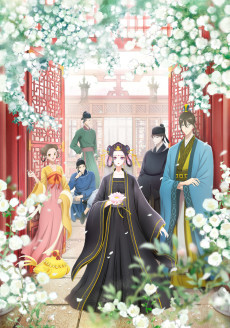 ANIME DramaKoukyuu no Karasu
ANIME DramaKoukyuu no Karasu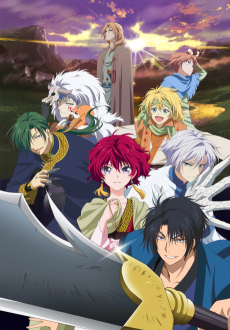 ANIME ActionAkatsuki no Yona
ANIME ActionAkatsuki no Yona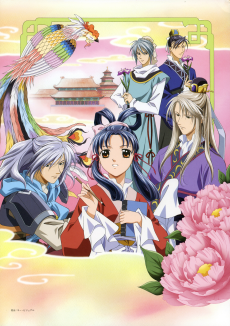 ANIME AdventureSaiunkoku Monogatari
ANIME AdventureSaiunkoku Monogatari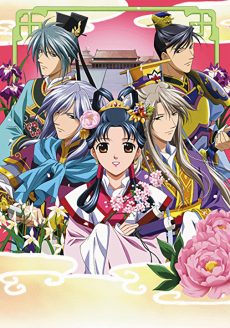 ANIME AdventureSaiunkoku Monogatari 2nd Season
ANIME AdventureSaiunkoku Monogatari 2nd Season ANIME AdventureSousou no Frieren
ANIME AdventureSousou no Frieren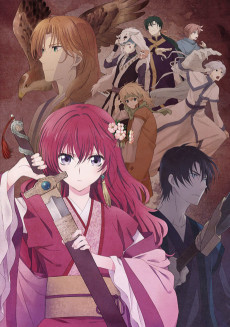 OVA ActionAkatsuki no Yona OVA
OVA ActionAkatsuki no Yona OVA
SCORE
- (4.4/5)
TRAILER
MORE INFO
Ended inMarch 24, 2024
Main Studio OLM
Trending Level 17
Favorited by 15,573 Users
Hashtag #薬屋のひとりごと

